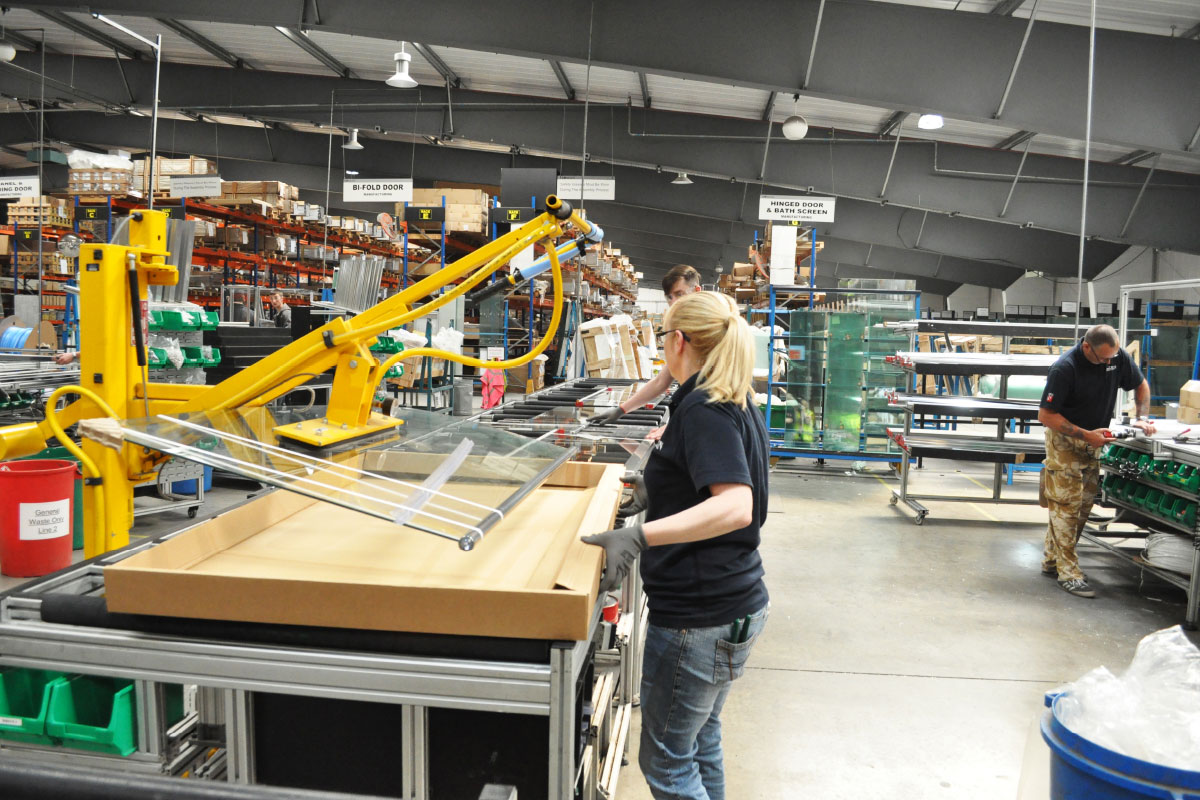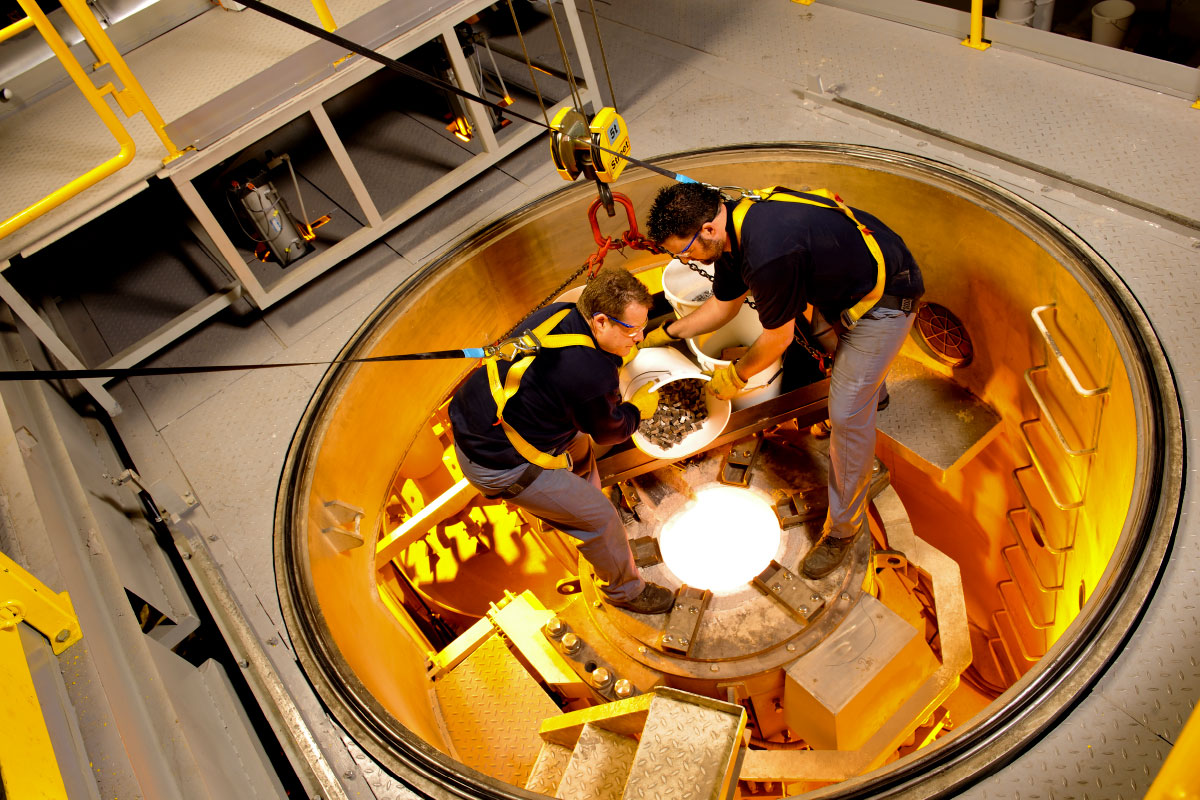Britain does a poor job in conveying modern views of engineering to young people and encouraging more of them to choose it as a career, according to a hard hitting assessment of the decades-old struggle in Britain to update public perceptions of the discipline.
"The lack of engineers in positions of influence in society is mirrored by a lack of understanding of the importance of engineering and the role engineers play, compounded by our inability to communicate that engineering is exciting," says an authoritative report by a top barrister and civil engineer.
Download the full Uff report
In the study Prof John Uff highlights "the importance of marketing [of engineering related subjects] in addressing misperceptions and prompting enquiry" but says this is inadequately addressed in many schemes operated either by the engineering profession or educational groups. "STEM [science, technology, engineering and mathematics] options are, for some young people, loaded with perceptions of limitations," the report says.
Uff lays much of the blame at the door of Britain's 35 official engineering institutions – of which the three biggest commissioned his inquiry. The institutions are said in the study to be "inward facing, elitist and insular" and "do little to engage with the wider engineering community or with society at large".
The professor singles out for rebuke the promotional body EngineeringUK. "Serious criticisms have been voiced as to the performance and outcomes achieved by EngineeringUK in its educational activities, which are criticised as ineffective, particularly the campaigns to inspire school children to take up STEM studies… The UK remains woefully behind international competitors in recruiting potential engineers."
The report says: "Allowing for the fact that EngineeringUK has only been operating since 2010, the question still arises why, despite some two decades of endeavour by EngineeringUK and its predecessor, there has been no material increase in numbers taking STEM courses." EngineeringUK evolved from the Engineering Technology Board, which in turn was born from the Engineering Council. These bodies and the engineering community have been trying to improve the image of the profession for more than 30-years.
However Paul Jackson, outgoing chief executive of EngineeringUK, said Prof John Uff was "wrong" on several points where he reprimands the organisation.
"I don't think the reality of what we've achieved in terms of changing the public's views about engineers is captured in the report. What we see in this study is one person's opinion about EngineeringUK." (see Engineering group says Uff is wrong).
Bernie Rickinson, chief executive of the Institute of Materials, Minerals and Mining, one of the 35 institutions, said: "Uff’s criticisms of EngineeringUK are unjustified, and to the bulk of the [engineering] community these views are opposed."

Uff's conclusions are part of an analysis of Britain's long running effort to rid engineering and related disciplines of its perception of being an old fashioned activity, and as a result attract more young people to tackle deep-seated skills shortages. Such concerns were behind the establishment of Made Here Now as a project to use the internet and social media to provide more upbeat impressions of manufacturing and engineering so as to make them more appealing career choices.
Uff says the repercussions of the failure in presenting the right images about engineering have a serious impact on businesses.
"The STEM [science, technology, engineering and mathematics] skills pipeline fails to produce the potential numbers indicated by initial entrants… The result is a serious lack of scientific literacy and a highly restricted talent pool for engineering… a huge missed opportunity."
Uff's report was published earlier this year although its broad conclusions have been debated informally within the profession since last autumn.
Many top professional bodies have welcomed the overall conclusions – particularly the need for greater coordination of existing promotional schemes. In particular Uff calls for greater cooperation or even a full merger between bodies such as the Royal Academy of Engineering - which takes the lead on representing UK engineering to the government – and other groups including EngineeringUK. However the main engineering institutions have already rejected the sections of the report calling for mergers between EngineeringUK and other bodies.
Philip Greenish, RAE chief executive, said: "John Uff’s thorough and forward-looking review has focussed the attention of the engineering profession on many important issues which must be addressed if we are to meet the needs of society more effectively. It is now incumbent on the profession as a whole to take stock of his recommendations and act effectively on them.”
According to the RAE, 20,000 additional graduates and high level apprenticeship engineers will be needed every year between now and 2024 to match the expected demand.
In his report Uff considered the entire field of engineering and related technical disciplines. An estimated 4m-5m people in the UK have engineering related skills of which about 40 per cent are thought to work in manufacturing. The rest are in a range of other fields where engineering skills are needed – from designing bridges and power stations to servicing central heating boilers or working as a banker analysing technology companies.
Uff points out that providing a modern view of engineering to young people is part of a problem with deep historical roots that cannot be divorced from wider failings in the education system.
"As regards education and training of engineers, there is little doubt that the system which has evolved over some two centuries, with late and grudging acknowledgement by academia of the importance of engineering, is still a long way from the system required by an advanced technology-based economy in the 21st century.”
Key points from Uff report
Ineffective coordination of existing promotional schemes
"There are a staggering number of schemes promoting engineering in schools and almost as many organisations and bodies involved in this task. The variety and overlap is bewildering and wasteful… Whilst many [individual schemes] are individually excellent, the net effect is not making sufficient impact."
New resources needed for teachers
"Resources, funding and teachers with technical backgrounds and experience have not increased to the levels needed… Making a lasting impression on young people in schools requires sustained activity throughout a child’s primary and secondary education. Away days and fairs entertain but cannot compete with the intense and structured teaching which has evolved in response to school league tables."
An integrated approach to engineering
"There will not be a single landscape in the future of engineering, but many. While there will be more technical specialists and specialisms, there will be an increasing need to work across boundaries with new sectors playing a more active part in infrastructure design, construction operations and maintenance. Teams of engineers will be increasingly multi-disciplinary and will need to demonstrate creativity and communication skills as the profession moves to a collaborative approach."

Engineering group says Uff is wrong
EngineeringUK – a body set up by the engineering profession to promote the discipline particularly in schools – has hit back at damning criticisms of its performance.
Paul Jackson – outgoing chief executive of EngineeringUK – said he disputed the view in a study by Prof John Uff that its promotional efforts had failed to work. "You could talk to 100 other people and get a different opinion," he said.
EngineeringUK is financed mainly by registration fees from the UK's 230,000 most highly qualified engineers.
Jackson – who left EngineeringUK in July – said Uff's negative views about the effectiveness of festivals and other events to encourage interest in science and technology were misplaced. The biggest of these is the annual Big Bang fair which EngineeringUK organises and which last year attracted 70,000 visitors.
Jackson is being replaced in October by Mark Titterington, currently head of corporate affairs at the plant science company Syngenta, the Swiss seed and pesticide maker being acquired by ChemChina.
Where the report claims there has been "no material" increase in the numbers of young people interested in STEM [science, technology, engineering and mathematics] topics EngineeringUK says the higher numbers taking physics and maths A-levels point to increased interest among teenagers in engineering subjects.

An EngineeringUK official said: “Both [physics and maths] have seen increases at A-level and maths is in top spot as most popular A-level subject. In 2009 of all those taking GCSEs 12.7 per cent took physics, rising to 25.5per cent in 2016 and when you look at girls taking GSCEs those taking physics has risen from 11.5 per cent in 2009 to 23.9 per cent in 2016. In terms of the vocational route, the number of engineering apprenticeships in England is at its highest level for ten years at 108,000."
Michelle Dow, managing director of All About STEM, an organisation supporting STEM teaching in north-west England, said: "It's a sweeping statement to say that events like the Big Bang fair don't work. I think fairs like this are part of the solution. Would a merger between EngineeringUK and other bodies such as the Royal Academy of Engineering make things better? I'm not sure – unless this gave me more money for projects which I don't think would necessarily happen."
The three big engineering institutions that commissioned Uff's report – the Institution of Mechanical Engineers, the Institution of Engineering and Technology and the Institution of Civil Engineers – were reluctant to comment on individual criticisms.
Colin Brown, head of engineering at the IMechE, said the review was to "see how we [in the engineering sector] could work better together, not to pit one side against any other". He added: "Any criticisms of progress were really akin to highlighting those areas where we thought we might be able to make most progress… Uff has given us some very useful ideas and it’s up to us now to get on and respond to them."
Nigel Fine, IET chief executive, said the study was a "wake-up call for us to take action" while Nick Baveystock, ICE director-general, said the study "highlighted a number of important ways in which we can strengthen the structure of our profession".
by Peter Marsh
Uff hits the right notes – but a new approach is needed
Making engineering and manufacturing more alluring for young people is a challenge Britain has wrestled with for decades. Unhappily, progress in cracking the problem has been pedestrian. A large number of promotional schemes – organised by schools, individual companies and professional associations – have failed to reduce the complaints from businesses about a shortage of young people keen on an industrial career.
The latest examination of the issue by the barrister Prof John Uff has laid much of the blame at the door of the big engineering institutions together with EngineeringUK, the educational body they play a big role in running.
Some of the criticism is unfair. The UK's education system has deep seated failings: a long-established mistrust of vocational subjects, an inability to link effectively the technical and arts parts of the schools curriculum and lack of empathy with the world of production. Added to this, many manufacturing companies do a dismal job in conveying a positive image about what they do. All hamper the effort to enthuse young people about a future in industry.
Even so efforts to stir the passions of the younger generation about technical subjects fall far short of what is needed. Most of the organisations in charge of schemes to promote technology and manufacturing in schools are membership organisations with their own agendas.
They have their own interests to promulgate, driven by the favoured causes of the individuals and companies that finance them. To date they have been unable to connect up the many facets of engineering so people looking at this from the outside can see the bigger picture. As a result the debate about conveying positive images about the discipline is left largely to insiders. While engineers discuss the matter with other engineers, others who might have valid views remain on the sidelines.
The Uff review illustrates the sterility of this approach. Uff listened to ideas mainly from other parts of the engineering profession. He ended up criticising the same engineering institutions that commissioned the report while making other negative comments about EngineeringUK – a body financed largely by fees from the top engineers who belong to the institutions and whose controlling board includes the chief executives of the three biggest of these groups.
With a certain weariness, Uff comments that his conclusions are not much different to those of other similar reviews conducted over the past 30 years. As for his findings, the engineering institutions have done very little to discuss them with the outside world. The report has been largely buried from view. The inference is that after a certain amount of ritualised self-flagellation – all carried out away from the public gaze – things will carry on much as before.
If the UK is serious about doing something practical about increasing the flow of young people into industry, a different stance is required. Ideas from the engineering institutions are needed – but so are those from the many other groups including advertising, finance, local government, education and community-based social enterprise. Rather than conduct the debate in an inward looking, circular way, the best ideas from a number of different vantage points should be melded together to help paint a more positive picture of industry and to achieve better results on the skills and recruitment front. This is the approach Made Here Now stands for. The results so far can be viewed on the website you are now reading. A lot more needs to be done. If you like what we are doing and want to join us, get in touch.
